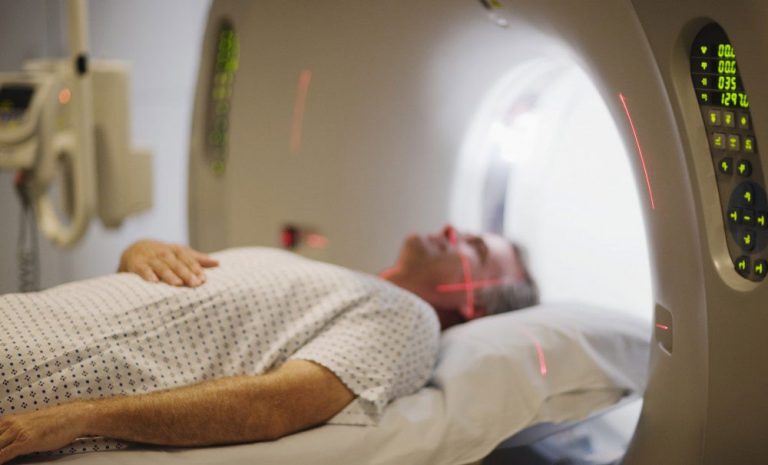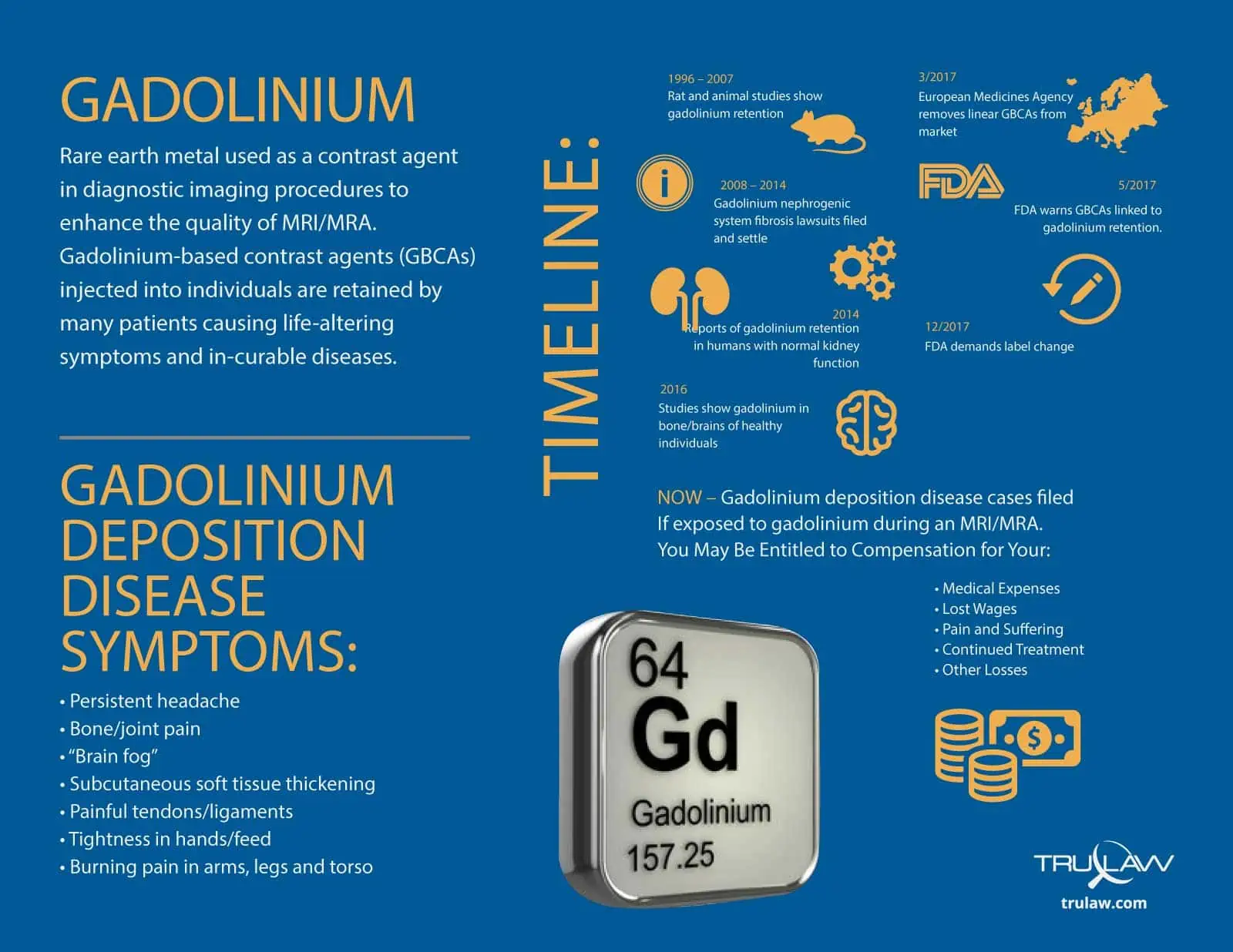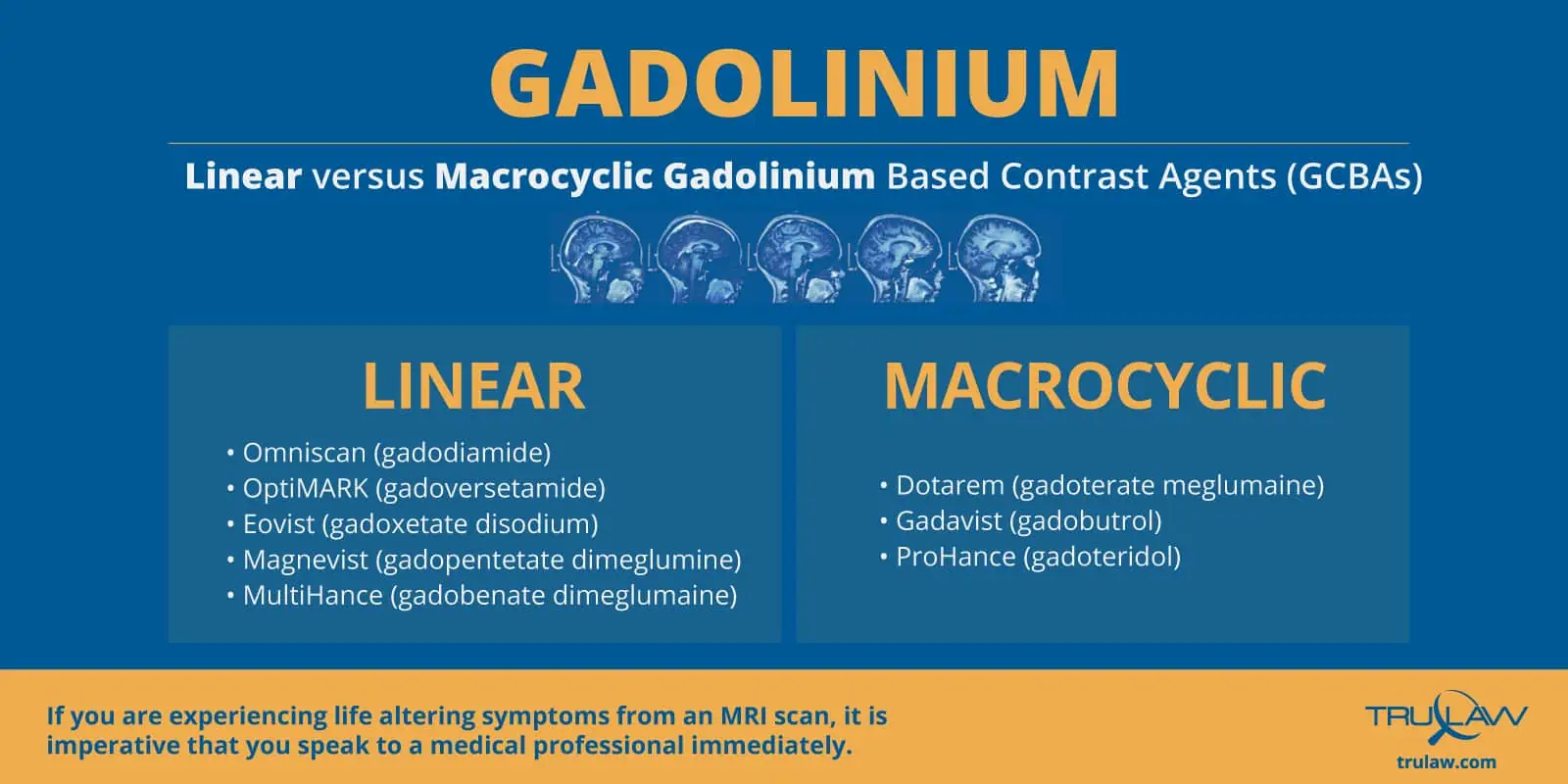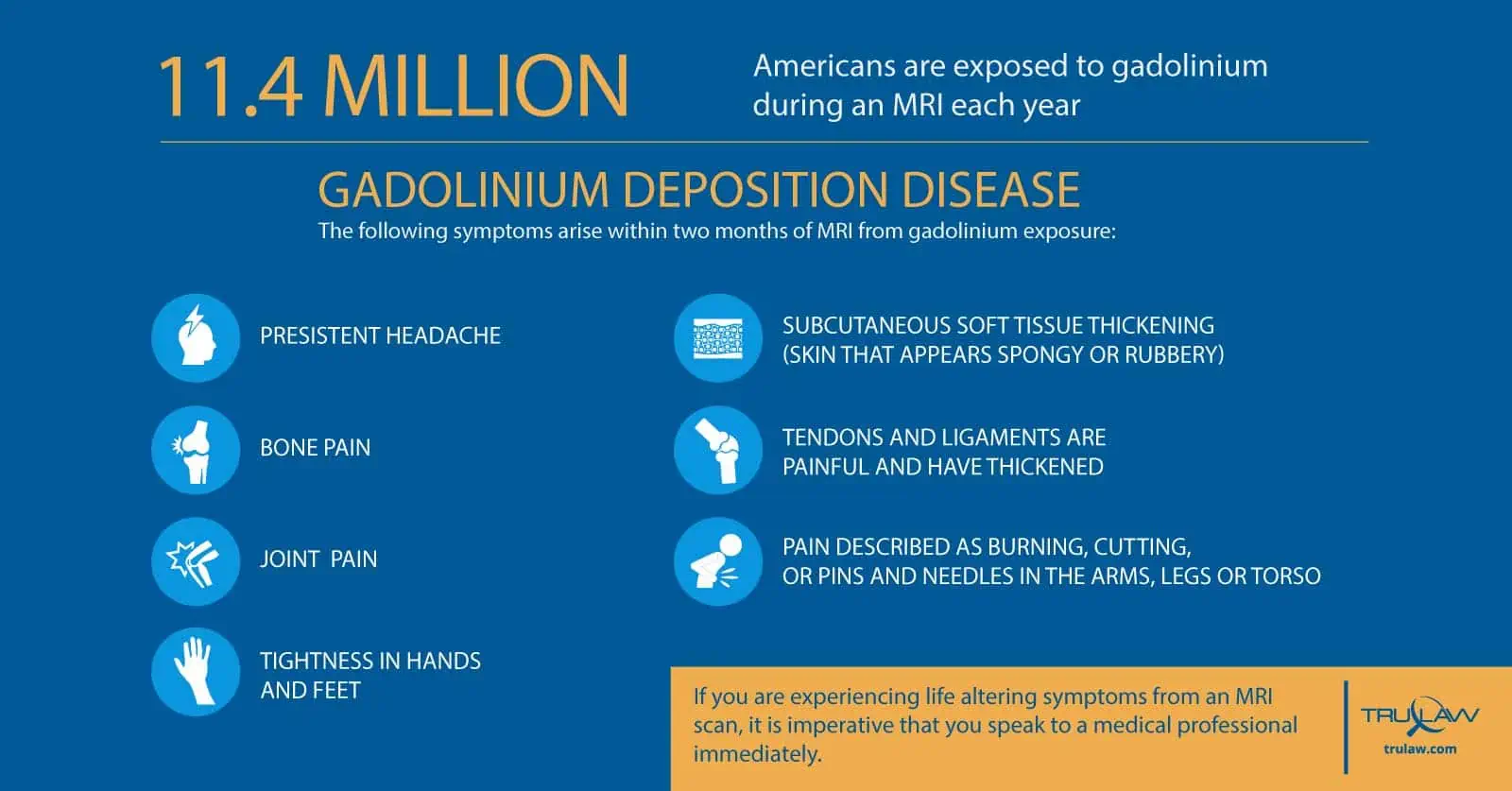Since September 2010, the FDA has required that gadolinium-based contrast agents (GBCA) carry a warning on their label about the risk of Nephrogenic Systemic Fibrosis (NSF) when administered in individuals with kidney disease.
NSF is a disease of fibrosis of the skin and organs.
Fibrosis is characterized by a thickening or hardening of the skin and most often appears in the arms and legs.
NSF diagnosis have decreased substantially since MRI/MRA protocol have required kidney testing prior to using gadolinium as a contrast agent.
In 2014, Japanese scientists reported gadolinium was found in the brains of deceased patients who never had kidney disease.
This study led to the finding that a small quantity of gadolinium will remain in the patient for an indeterminate amount of time, regardless of renal function.













